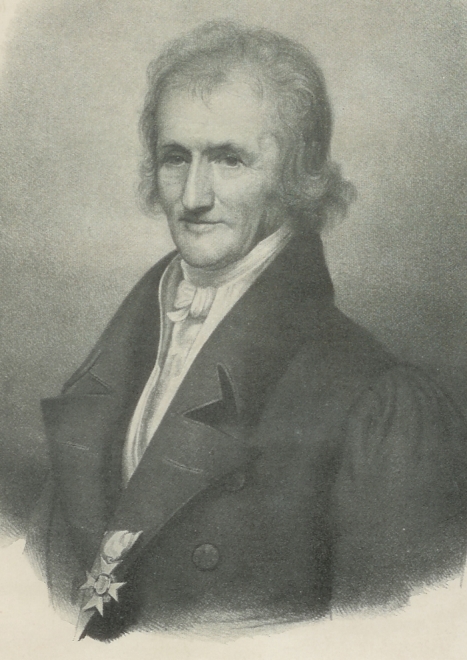|
Hochschule Für Nachhaltige Entwicklung Eberswalde
The Eberswalde University for Sustainable Development (german: Hochschule für nachhaltige Entwicklung Eberswalde, literally ''University for Sustainable Development''; abbreviated in German as ''HNE Eberswalde'' or ''HNEE'') is a Fachhochschule in Eberswalde, Germany. It was founded 1830 as a higher institute (''Höhere Forstlehranstalt'') of forestry. It was re-established in its present form as a Fachhochschule, or university of applied sciences, in 1992, with a range of courses and content geared towards sustainable development. In 2010 it was renamed the Entwicklung Eberswalde (FH). Since December 1997 its president has been Wilhelm-Günther Vahrson. Notable person *Julius Lothar Meyer See also * List of historic schools of forestry This is a list of historic schools of forestry, by founding date. Also included is information about each school's location, founder(s), present status, and (where applicable) closing date. Many remain active. 1700s * 1778 - A course of s ... [...More Info...] [...Related Items...] OR: [Wikipedia] [Google] [Baidu] |
Eberswalde
Eberswalde () is a major town and the administrative seat of the district Barnim in the German State ( Bundesland / ''federated state'') of Brandenburg, about 50 km northeast of Berlin. Population 42,144 (census in June 2005), geographical location . The town is often called Waldstadt (forest town), because of the large forests around it, including the Schorfheide-Chorin Biosphere Reserve. Despite this fact, Eberswalde was an important industrial center until the German Reunification. History Prehistory The area around Eberswalde was already populated in Paleolithic. Before the establishment of the Margraviate of Brandenburg it was the place of a Slavic stockade. The Treasure of Eberswalde, the largest pre-Christian gold treasure from the area of today's Germany was found here. Today the treasure is located in the Pushkin Museum in Moscow. Founding and development The town of ''Everswolde'' ("forest of the boars") was established in 1254 by the Ascanian margrave Joha ... [...More Info...] [...Related Items...] OR: [Wikipedia] [Google] [Baidu] |
Sustainable Development
Sustainable development is an organizing principle for meeting human development goals while also sustaining the ability of natural systems to provide the natural resources and ecosystem services on which the economy and society depend. The desired result is a state of society where living conditions and resources are used to continue to meet human needs without undermining the integrity and stability of the natural system. Sustainable development was defined in the 1987 Brundtland Report as "Development that meets the needs of the present generation without compromising the ability of future generations to meet their own needs".United Nations General Assembly (1987''Report of the World Commission on Environment and Development: Our Common Future'' Transmitted to the General Assembly as an Annex to document A/42/427 – Development and International Co-operation: Environment. As the concept of sustainable development developed, it has shifted its focus more towards the economic ... [...More Info...] [...Related Items...] OR: [Wikipedia] [Google] [Baidu] |
Fachhochschule
A ''Fachhochschule'' (; plural ''Fachhochschulen''), abbreviated FH, is a university of applied sciences (UAS), in other words a German tertiary education institution that provides professional education in many applied sciences and applied arts, such as engineering, technology, business, architecture, design, and industrial design. ''Fachhochschulen'' were first founded in Germany and were later adopted in Austria, Liechtenstein, Switzerland, Cyprus, and Greece. An increasing number of ''Fachhochschulen'' are abbreviated as ''Hochschule'', the generic term in Germany for institutions awarding academic degrees in higher education, or expanded as ''Hochschule für angewandte Wissenschaften (HAW)'', the German translation of "universities of applied sciences", which are primarily designed with a focus on teaching professional skills. Swiss law calls ''Fachhochschulen'' and universities "separate but equal". Due to the Bologna process, universities and ''Fachhochschulen'' award l ... [...More Info...] [...Related Items...] OR: [Wikipedia] [Google] [Baidu] |
Germany
Germany,, officially the Federal Republic of Germany, is a country in Central Europe. It is the second most populous country in Europe after Russia, and the most populous member state of the European Union. Germany is situated between the Baltic and North seas to the north, and the Alps to the south; it covers an area of , with a population of almost 84 million within its 16 constituent states. Germany borders Denmark to the north, Poland and the Czech Republic to the east, Austria and Switzerland to the south, and France, Luxembourg, Belgium, and the Netherlands to the west. The nation's capital and most populous city is Berlin and its financial centre is Frankfurt; the largest urban area is the Ruhr. Various Germanic tribes have inhabited the northern parts of modern Germany since classical antiquity. A region named Germania was documented before AD 100. In 962, the Kingdom of Germany formed the bulk of the Holy Roman Empire. During the 16th ce ... [...More Info...] [...Related Items...] OR: [Wikipedia] [Google] [Baidu] |
Wilhelm-Günther Vahrson
Wilhelm-Günther Vahrson (born May 1955, Iserlohn Iserlohn (; Westphalian: ''Iserlaun'') is a city in the Märkischer Kreis district, in North Rhine-Westphalia, Germany. It is the largest city by population and area within the district and the Sauerland region. Geography Iserlohn is locat ...) is a German geographer and academic. Since 1997 he has been the president of the Hochschule für nachhaltige Entwicklung Eberswalde. References External links *http://www.zeit.de/studium/hochschule/2010-03/nachhaltigkeit-hochschule-Eberswalde German geographers Living people Academic staff of the Eberswalde University for Sustainable Development 1955 births People from Iserlohn {{Germany-scientist-stub ... [...More Info...] [...Related Items...] OR: [Wikipedia] [Google] [Baidu] |
Julius Lothar Meyer
Julius Lothar Meyer (19 August 1830 – 11 April 1895) was a German chemist. He was one of the pioneers in developing the earliest versions of the periodic table of the chemical elements. Russian chemist Dmitri Mendeleev (his chief rival) and he had both worked with Robert Bunsen. Meyer never used his first given name, and was known throughout his life simply as Lothar Meyer. Career Lothar Meyer was born in Varel, Germany (then part of the Duchy of Oldenburg). He was the son of Friedrich August Meyer, a physician, and Anna Biermann. After attending the Altes Gymnasium in Oldenburg, he studied medicine at the University of Zurich in 1851. Two years later, he studied at the University of Würzburg, where he studied pathology, as a student of Rudolf Virchow. At Zurich, he had studied under Carl Ludwig, which had prompted him to devote his attention to physiological chemistry. After graduating as a Doctor of Medicine from Würzburg in 1854, he went to the University of Heidelberg, wh ... [...More Info...] [...Related Items...] OR: [Wikipedia] [Google] [Baidu] |
List Of Historic Schools Of Forestry
This is a list of historic schools of forestry, by founding date. Also included is information about each school's location, founder(s), present status, and (where applicable) closing date. Many remain active. 1700s * 1778 - A course of study in forestry formally added to the curriculum at the University of Giessen, Hesse-Darmstadt, Holy Roman Empire * 1785 - Master school of forestry established by Heinrich von Cotta and his father,Shirley, Hardy L. "Professional Education in Forestry" '''', No. 75. Accessed: May 8, 2012. in Kleine Zillbach, near , [...More Info...] [...Related Items...] OR: [Wikipedia] [Google] [Baidu] |
Universities Of Applied Sciences In Germany
A university () is an institution of higher (or tertiary) education and research which awards academic degrees in several academic disciplines. Universities typically offer both undergraduate and postgraduate programs. In the United States, the designation is reserved for colleges that have a graduate school. The word ''university'' is derived from the Latin ''universitas magistrorum et scholarium'', which roughly means "community of teachers and scholars". The first universities were created in Europe by Catholic Church monks. The University of Bologna (''Università di Bologna''), founded in 1088, is the first university in the sense of: *Being a high degree-awarding institute. *Having independence from the ecclesiastic schools, although conducted by both clergy and non-clergy. *Using the word ''universitas'' (which was coined at its foundation). *Issuing secular and non-secular degrees: grammar, rhetoric, logic, theology, canon law, notarial law.Hunt Janin: "The university ... [...More Info...] [...Related Items...] OR: [Wikipedia] [Google] [Baidu] |
Universities And Colleges In Brandenburg
A university () is an institution of higher (or tertiary) education and research which awards academic degrees in several academic disciplines. ''University'' is derived from the Latin phrase ''universitas magistrorum et scholarium'', which roughly means "community of teachers and scholars". Universities typically offer both undergraduate and postgraduate programs. The first universities in Europe were established by Catholic Church monks. The University of Bologna (), Italy, which was founded in 1088, is the first university in the sense of: *being a high degree-awarding institute. *using the word ''universitas'' (which was coined at its foundation). *having independence from the ecclesiastic schools and issuing secular as well as non-secular degrees (with teaching conducted by both clergy and non-clergy): grammar, rhetoric, logic, theology, canon law, notarial law.Hunt Janin: "The university in medieval life, 1179–1499", McFarland, 2008, , p. 55f.de Ridder-Symoens ... [...More Info...] [...Related Items...] OR: [Wikipedia] [Google] [Baidu] |
Eberswalde University For Sustainable Development
The Eberswalde University for Sustainable Development (german: Hochschule für nachhaltige Entwicklung Eberswalde, literally ''University for Sustainable development, Sustainable Development''; abbreviated in German as ''HNE Eberswalde'' or ''HNEE'') is a Fachhochschule in Eberswalde, Germany. It was founded 1830 as a higher institute (''Höhere Forstlehranstalt'') of forestry. It was re-established in its present form as a Fachhochschule, or university of applied sciences, in 1992, with a range of courses and content geared towards sustainable development. In 2010 it was renamed the Entwicklung Eberswalde (FH). Since December 1997 its president has been Wilhelm-Günther Vahrson. Notable person *Julius Lothar Meyer See also * List of historic schools of forestry External linksOfficial site *http://www.utopia.de/magazin/ergebnis-deutschlands-gruenste-hochschulen-ranking Universities of Applied Sciences in Germany Universities and colleges in Brandenburg Eberswalde Univer ... [...More Info...] [...Related Items...] OR: [Wikipedia] [Google] [Baidu] |
1830 Establishments In Germany
Year 183 ( CLXXXIII) was a common year starting on Tuesday (link will display the full calendar) of the Julian calendar. At the time, it was known as the Year of the Consulship of Aurelius and Victorinus (or, less frequently, year 936 ''Ab urbe condita''). The denomination 183 for this year has been used since the early medieval period, when the Anno Domini calendar era became the prevalent method in Europe for naming years. Events By place Roman Empire * An assassination attempt on Emperor Commodus by members of the Senate fails. Births * January 26 – Lady Zhen, wife of the Cao Wei state Emperor Cao Pi (d. 221) * Hu Zong, Chinese general, official and poet of the Eastern Wu state (d. 242) * Liu Zan (Zhengming), Chinese general of the Eastern Wu state (d. 255) * Lu Xun Zhou Shuren (25 September 1881 – 19 October 1936), better known by his pen name Lu Xun (or Lu Sun; ; Wade–Giles: Lu Hsün), was a Chinese writer, essayist, poet, and literary critic. He ... [...More Info...] [...Related Items...] OR: [Wikipedia] [Google] [Baidu] |



